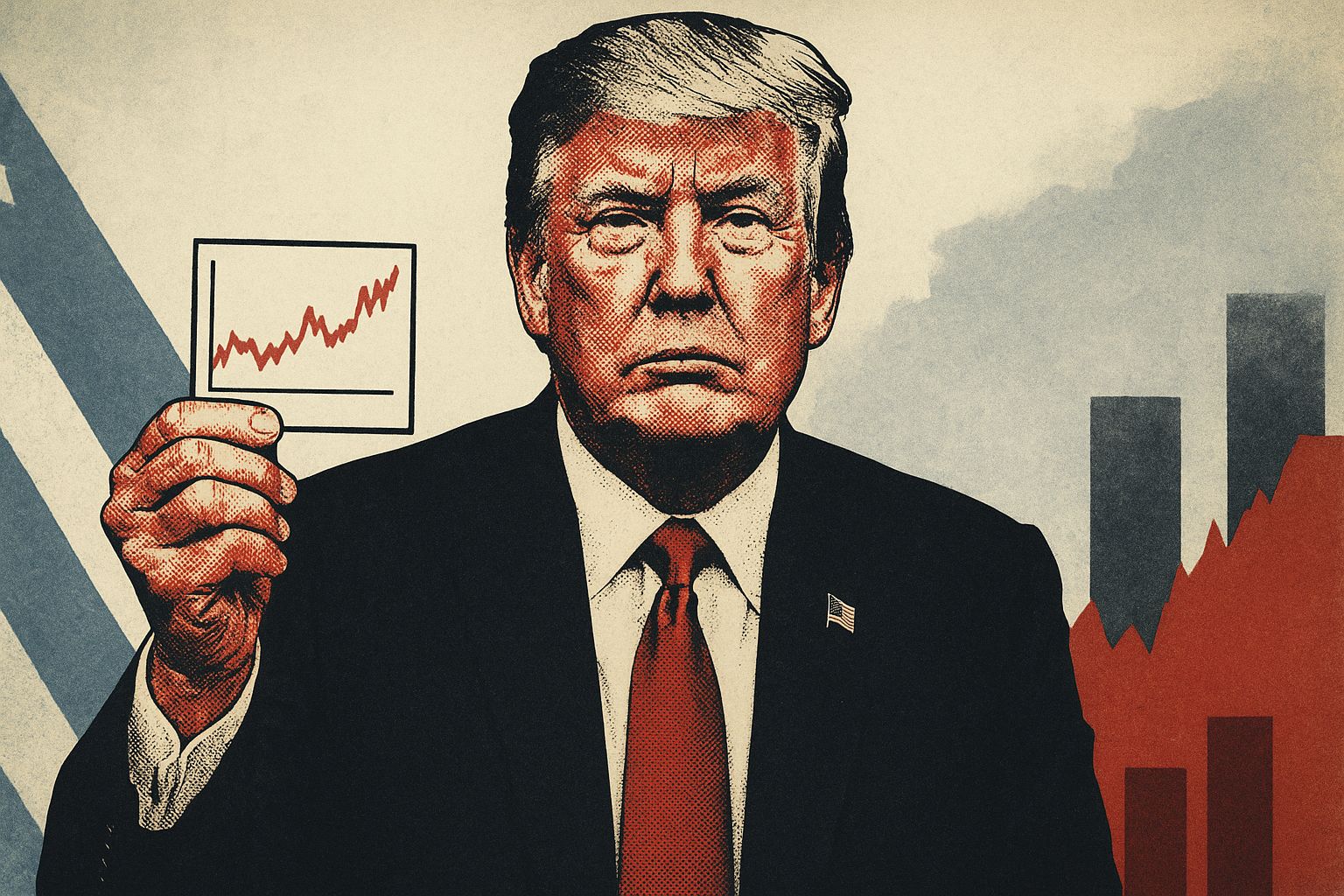Good morning, investors. We have never seen social media posts have as much of an impact on asset prices as this current moment. Some investors may argue that Elon Musk’s Tesla-related tweets moved markets as much as President Trump’s, but only the latter makes index level moves, rather than those of a single stock.
A tweet away from a sell-off or rally
By now, investors have no excuse for missing how quickly markets can turn on President Trump’s word.
On account of his posts on Truth Social, stocks turned positive once again Tuesday after Friday’s sharp sell-off.
The pattern has become familiar this year:
Tariffs threats drag stocks lower
Reassurance or a pivot pushes stocks back up

US stocks have now recovered more than two-thirds of their losses from Friday’s decline, which marked the largest erasure of market value in six months.
Naturally, the latest dip and bounce can be traced back to President Trump in a near carbon copy of April’s “Liberation Day” episode.
Each major statement from the White House this year has coincided with a near-term bottom, and the investors who have caught on to that rhythm have made money either holding through the volatility or buying the dip.
Even novice traders have learned to monitor the president’s social media feed as a new macro indicator.
While his individual posts vary in tone and content, they continue to dictate short-term direction for asset prices as well as volatility.
Consider how the VIX — Wall Street’s fear gauge — spiked 35% on Friday and remained elevated before falling Tuesday, once traders gained more clarity on tariffs.
Just as he has “called” the local bottoms for asset prices, he has “called” the local tops for volatility all year.
The above and below charts are effectively inverses of one another, with swings in each index tied to Trump’s tweets.

These charts suggest that the “buy the dip” reflex should no longer be considered a contrarian move so long as it’s tied to tariff news.
Rather than reacting to policy decisions, it’s now possible in theory to front-run swings in asset prices so long as you can correctly predict how global capital pools will interpret the tone of a tweet.
Today’s letter is brought to you by reAlpha!
What if buying a home felt as seamless as buying a car? With reAlpha, it can.
Think of it as an AI-powered homebuying platform in your pocket, with licensed experts guiding you at every step.
Realty, mortgage and title — all in one place, powered by the latest technology.
And when you close with reAlpha, you may qualify for a buyer’s agent commission rebate.
Homebuying is complex. reAlpha helps smooth the journey.
Market snapshot

Elsewhere
📈 Wall Street banks had an excellent quarter. JPMorgan, Goldman Sachs, and other firms crushed third-quarter expectations thanks to a boom in dealmaking and trading revenues. Still, bankers are cautious on the job market, asset bubbles and geopolitics for the months ahead. (WSJ)
🏦 Jerome Powell sees an end to quantitative tightening soon. In a Tuesday speech, he suggested the central bank could stop reducing the size of its bond holdings soon. He also gave no hints on where interest rates are headed. (CNBC)
🚗 JPMorgan’s Jamie Dimon raised caution on auto bankruptcies. The recent trouble with Tricolor Holdings and First Brands has put his “antenna” up, adding that “everyone should be forewarned on this one.” (Barron’s)
📨 What C-Suites are reading: Semafor Business, a twice-weekly briefing, brings original Wall Street scoops and exclusive interviews straight to your inbox. It's the perfect addition to your news digest. Sign up free here.
Rapid-fire
Powell acknowledged that downside risks to the job market are rising (Yahoo Finance)
A White House trade rep said new tariffs will depend on Beijing’s next move (CNBC)
Citi warned of “frothy and overvalued” corners of the stock market (Bloomberg)
Walmart stock jumped after announcing a partnership with OpenAI (Yahoo Finance)
GM took a $1.6 billion hit on its pullback on electric vehicles (WSJ)
High-income Americans feel very different about the economy versus everyone else (CNBC)
Domino’s stock climbed 3% after strong Q3 earnings results (WSJ)
The average new car price in the US has surpassed $50,000 for the first time (Yahoo Finance)
The current vibe shift and collective macro goal will save America (Pomp Letter)
Interview:
I joined the New York Stock Exchange for our regular segment to discuss whether we’re in an AI bubble, JPMorgan’s debasement trade, and the outlook for the fourth quarter.
On this day
🗓October 15, 1907: The Panic of 1907 begins with a failed scheme to corner the market on United Copper shares. This kicked off one of the most severe financial crises in history.
Last thing
About me
📰 I’m Phil Rosen, co-founder of Opening Bell Daily. I’ve published books, lived on three continents, and won awards for my journalism, which has appeared in Business Insider, Fortune, Yahoo Finance, Bloomberg and Inc. Magazine.
I write our flagship newsletter to prepare you for each trading day — unpacking markets, economic data and Wall Street with analysis you won’t find anywhere else.
Feedback? Reply to this email, ping me on X @philrosenn, or write me directly at [email protected].
*reAlpha Disclaimers: Actual savings vary and are not guaranteed. Not available in all states. Terms apply. reAlpha Realty, LLC | reAlpha Mortgage | NMLS #1743790 | Equal Housing Opportunity


